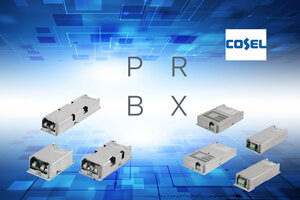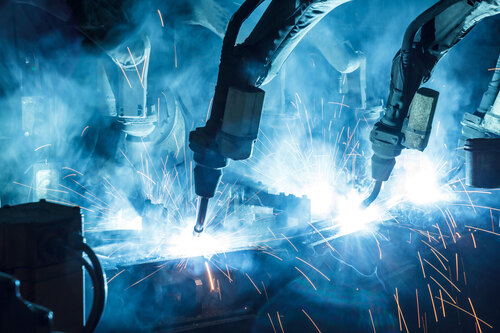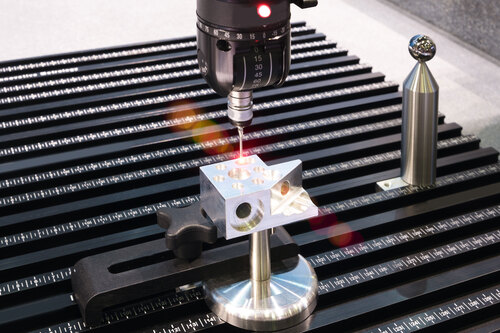
Whilst standard industry-grade power supplies are great for commercial and industrial workloads, when it comes to defence appliances, there exists a whole host of different requirements to meet the standards for use in the military.
Defence applications are one of the most demanding scenarios for power appliances, combining the high DC output needed to drive complex machinery with extreme endurance and ruggedisation to increase the safety and longevity of devices.
For static applications, military system designers can use standard off-the-shelf power supplies for cost efficacy and economies of scale benefits, but for any appliances that need to be taken into the field, some form of ruggedisation is needed: hence a thriving rugged power supply market was created for defence contractors.
There are a few noteworthy military standards to keep in mind of when exploring the different options for rugged power supplies, as they dictate the environment capabilities of each power supply. Ensuring you’re picking the right power supply is vital to keep defence equipment running efficiently at all times.
The MIL-STD-810 Standard
One of the most common environmental standards is the MIL-STD-810 US military specification: a key indicator of whether a device, in our case a power supply, has an adequate level of durability for use in the field.
The standard’s test methods intend to certify suitability and safety in real-world environmental stresses common in active duty. A MIL-STD-810 compliant device has passed 28 tests including (but not limited to):
· Low pressure tests
· Extreme temperatures as low as 40°C and as hot as 100°C
· Withstand solar radiation
· Withstand strong vibrational forces
· Shock and pyro shock resistance
· Withstand freezing and thawing
· Ballistic and gunfire shock resistance
Just to name a few! These conditions are replicated in stringent laboratory environments to give users the confidence that their appliances will perform adequately in defence applications.
An example of a power supply built to the MIL-STD-810 standard is the Cosel DBA Series, an excellent low-profile AC to DC switching power supply capable of delivering 150W of power. Most aspects of the DBA are fairly similar to non-defence off-the-shelf PSUs, including it’s fairly modest 2V to 48V variable DC output.
But, the robust mechanical mounting and optional conformal coating, the DBA can be built to meet 810E standards for shock & vibrations, humanity and an operating ambient temperature rating of -40°C to +100°C.
MIL-STD 1399 Shipboard Standard
Another example of a power supply built to military specification is the DBA1200 Series. With the M option, this power supply not only complies with the MIL-STD810E shock & vibration standards thanks to robust mountings, conformal coating and overtemperature protection, this high power (up to 1200W) also adheres to the MIL-STD 1399 for the use on military ships.
The military standard 1399 for shipboard systems establishes the electrical interface characteristics required for sea use. One of the most important requirements of shipboard power supply is the need to keep total harmonic distortion to a low, acceptable level.
With a universal input with PFC (active power factor correction) to avoid said input current harmonics, interference with other devices is extremely low with this power supply, making it suitable for defence, demanding industrial or marine use.
The DBA1200 also passes the ITE EN55022 specification, keeping equipment radio disturbance to a minimum. This is crucial for use in naval applications to reduce the chance of electric interference impacting the operation of sensitive radar and radio equipment.
Conformal Coatings
Briefly touched upon previously, conformal coatings are a key tool power supply manufactures to reach military standard compliance. These power supplies feature a thin polymeric film which conforms to the contours of the PCB to protect the board's components.
These coatings are useful as they eliminate the need for complex enclosures by providing strong protection on the micro-level, and also completely protect the power supply assembly against chemical and corrosive attacks, perfect for ensuring safety on the field.
For land and sea use, the inherent ambient humidity protection afforded by a micro-coating allows power supplies to read the damp heat requirements of MIL STD 810 Proc. 507-2.
Why these standards exist?
There are few applications more critical than military use, where appliances and assemblies are required to work and as reasonably as possible without fail. In industry, engineers can mitigate any potential environmental stresses and accept compromises.
For the power needs of military use, defence contractors must assemble rugged and reliable systems to meet the requirements of defence departments. If a defence appliance doesn’t reach the MIL-STD-810 standard, the US military wouldn’t touch it with a ten-foot pole.
If system designers are looking for power supplies that can withstand harsh conditions, are geared up for 24/7 operation, off-the-shelf rugged power supplies for defence have the necessary designs and certifications to perform adequately throughout a equipment’s life cycle, even for the most demanding applications.
Click here to see the range of rugged power solutions available







